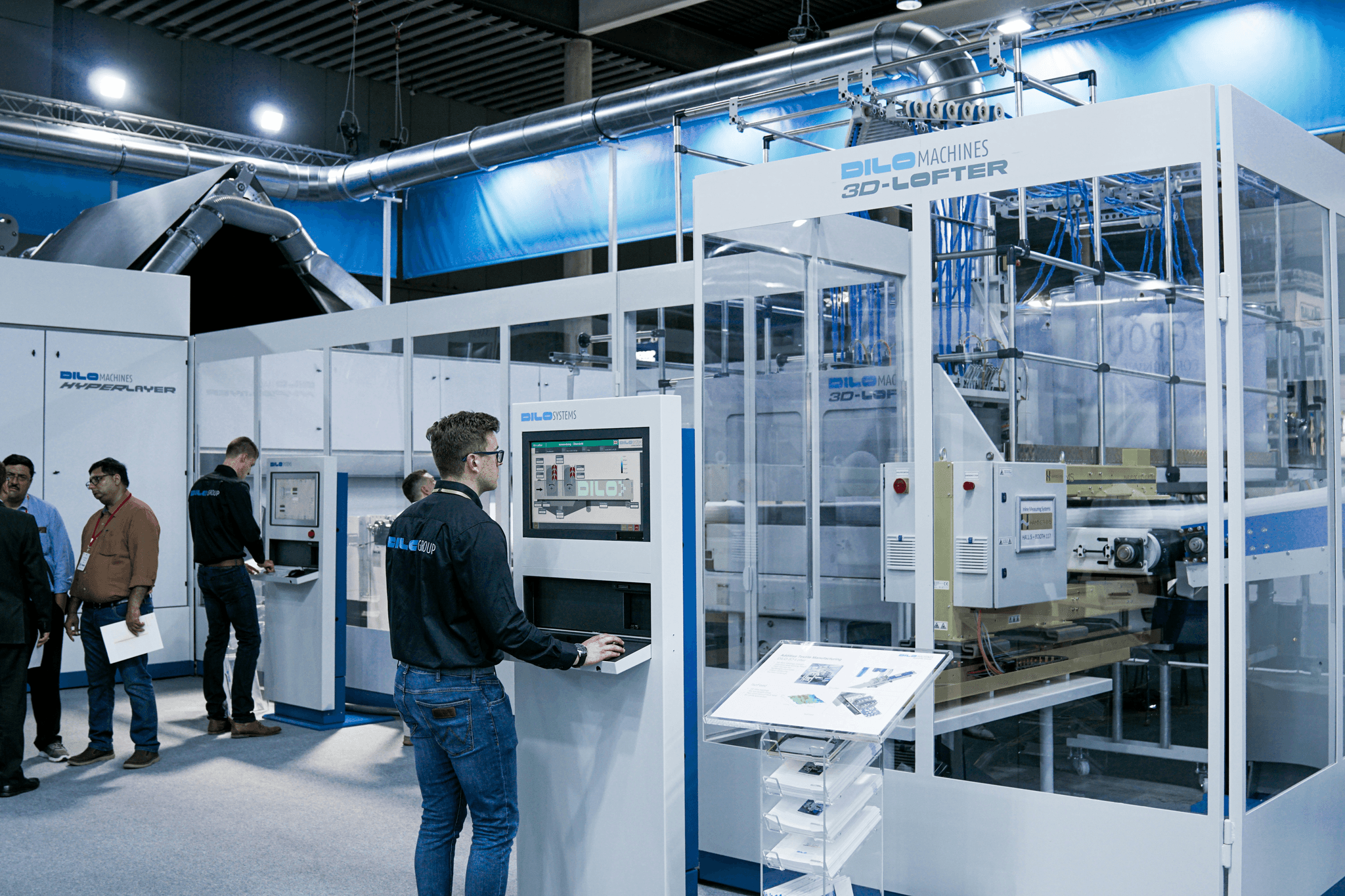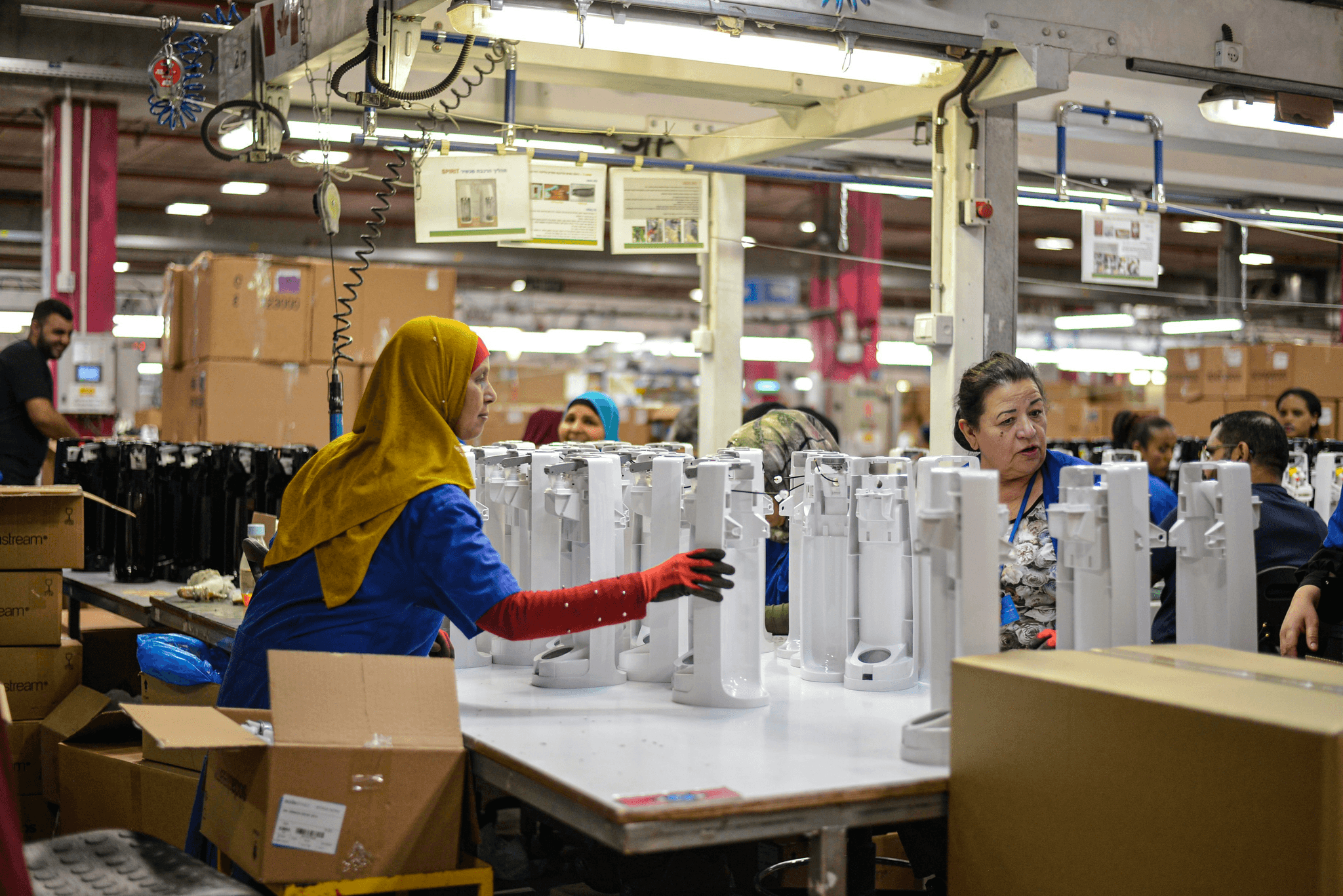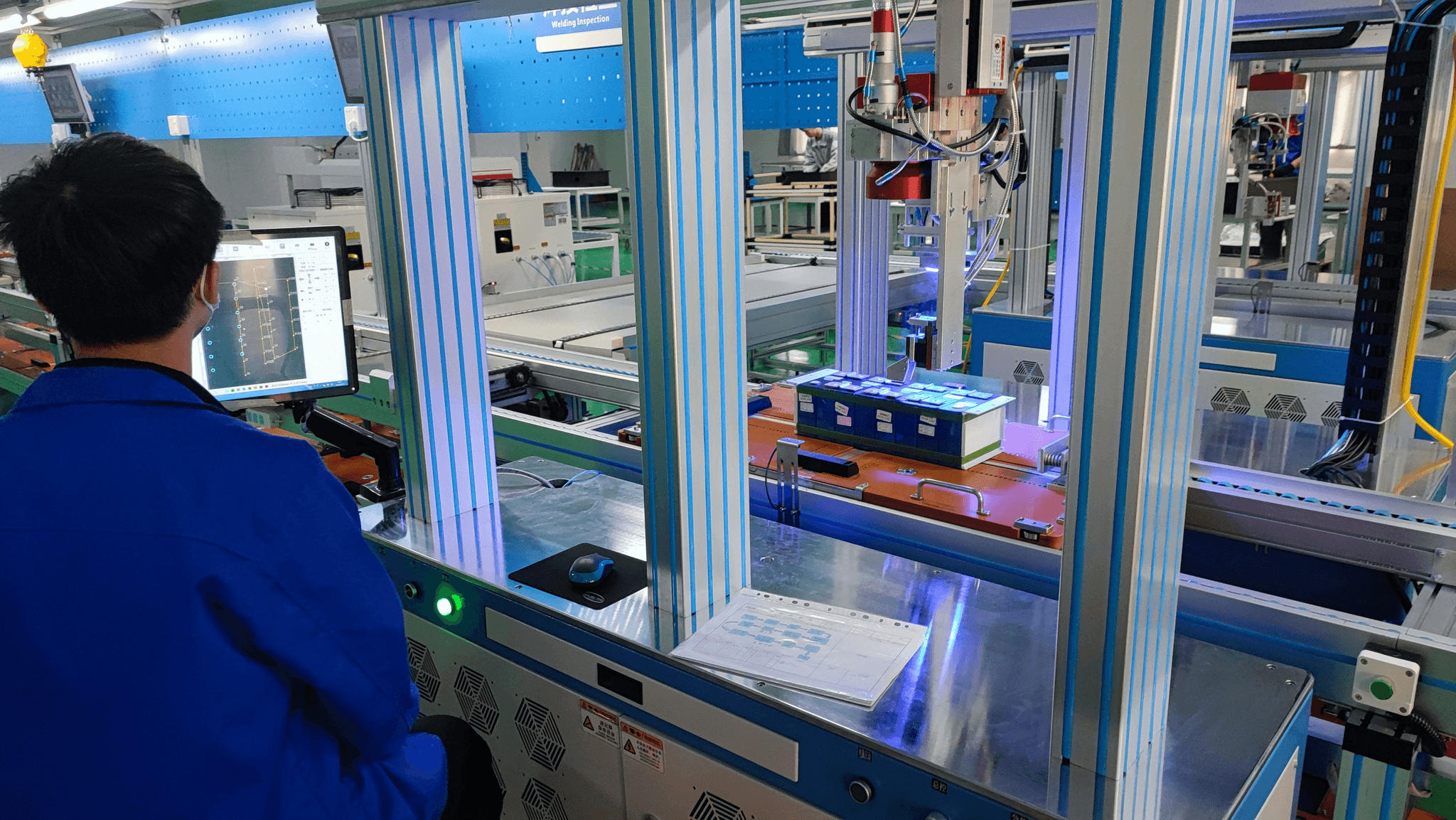Introduction

In today's competitive market, Quality Manufacturing is not just a buzzword; it's the backbone of successful businesses. Companies that prioritize quality in their manufacturing processes can significantly reduce costs, enhance customer satisfaction, and build brand loyalty. As we delve into the nuances of achieving product excellence, we will explore essential strategies like auditing potential and existing suppliers, developing clear product criteria, rigorous testing protocols, continuous inspection throughout production, and fostering a culture of ongoing improvement.
Understanding the Importance of Quality Manufacturing
Quality Manufacturing serves as a critical differentiator in an increasingly crowded marketplace. Businesses that embrace quality not only meet but often exceed customer expectations, leading to repeat business and referrals. By recognizing the significance of establishing high standards from the outset, manufacturers can create products that resonate with consumers while minimizing waste and inefficiencies.
Key Elements to Achieve Product Excellence
Achieving product excellence hinges on several key elements that collectively ensure high-quality outcomes. From meticulously auditing potential and existing suppliers to developing precise product specifications that align with market needs, each aspect plays a vital role in overall success. Furthermore, implementing robust testing protocols allows companies to catch issues early on—before they escalate into costly problems.
The Role of Continuous Improvement in Manufacturing
Continuous improvement is an ongoing journey rather than a destination; it’s about striving for better processes every day. By focusing on supporting continuous improvement initiatives within manufacturing operations, companies can foster innovation while enhancing efficiency and quality standards over time. This commitment not only leads to superior products but also cultivates an agile mindset among teams dedicated to maintaining excellence in Quality Manufacturing.
Audit Potential & Existing Suppliers

In the realm of Quality Manufacturing, auditing potential and existing suppliers is a critical step that can make or break your product's success. This process involves a thorough examination of suppliers to ensure they meet the necessary standards and capabilities required for your production needs. By investing time in this audit phase, you lay the groundwork for reliable partnerships that foster quality and innovation.
Assessing Supplier Capabilities
When assessing supplier capabilities, it’s essential to dive deep into their operational processes, technology use, and workforce expertise. A supplier's ability to deliver on your expectations hinges on their resources and experience; therefore, examining their past performance metrics can provide valuable insights. Additionally, conducting site visits can reveal much about their manufacturing environment and adherence to best practices in Quality Manufacturing.
To truly know if a supplier is up to par, consider using scorecards or rating systems that evaluate various aspects such as production capacity, lead times, and flexibility in meeting changing demands. This structured approach not only helps in making informed decisions but also aligns with your goal to Develop Product Criteria/Specifications – Know Your Product effectively. Remember, a capable supplier is one who not only meets your current needs but also has the potential for growth alongside your business.
Ensuring Compliance with Quality Standards
Ensuring compliance with established quality standards is vital for maintaining product integrity throughout the supply chain. Suppliers must adhere to industry regulations like ISO certifications or specific safety standards that are relevant to your products. Regular audits can help verify compliance levels while fostering an atmosphere of accountability among suppliers.
Moreover, implementing robust documentation practices ensures that all parties are aligned on quality expectations from the get-go. This proactive stance allows you to identify potential issues before they escalate into costly problems down the line—an essential aspect of inspecting throughout production phases as well as during initial testing stages of products. Ultimately, compliance isn’t just about ticking boxes; it’s about building trust within reliable partnerships that prioritize quality.
The Importance of Reliable Partnerships
Reliable partnerships with suppliers are foundational for achieving excellence in Quality Manufacturing; after all, you’re only as strong as your weakest link! Establishing relationships built on transparency and mutual respect encourages open communication about challenges and opportunities alike. When both parties feel invested in each other's success, it fosters collaboration towards continuous improvement initiatives.
Additionally, these partnerships allow for shared knowledge regarding market trends or technological advancements that can enhance product offerings over time. By focusing on nurturing these connections through regular check-ins and feedback loops, you create an ecosystem where both parties thrive together—essentially setting up a win-win scenario! In essence, cultivating reliable partnerships amplifies efforts across all stages: from developing clear product specifications to testing products rigorously before they hit shelves.
Develop Product Criteria/Specifications – Know Your Product

In the realm of Quality Manufacturing, developing robust product criteria and specifications is paramount. Understanding your product inside and out allows manufacturers to create items that not only meet but exceed customer expectations. This process lays the groundwork for effective audits of potential and existing suppliers, ensuring that all parties are aligned on quality standards.
Defining Clear Specifications
Defining clear specifications is the cornerstone of successful product development in Quality Manufacturing. These specifications should be precise, detailing every aspect from materials used to dimensions and tolerances. When everyone involved has a clear understanding of what is required, it reduces the likelihood of errors during production and enhances collaboration with suppliers during audits.
By establishing detailed criteria, manufacturers can also streamline their testing process later on. Clear specifications act as a reference point when testing products to ensure they meet the defined standards before reaching consumers. Ultimately, this clarity fosters stronger relationships with suppliers who appreciate knowing exactly what is expected from them.
Aligning Product Features with Market Needs
To truly excel in Quality Manufacturing, aligning product features with market needs is essential. This involves conducting thorough market research to understand consumer preferences and industry trends. By doing so, manufacturers can develop products that not only satisfy current demands but also anticipate future needs.
When features are tailored to market requirements, it enhances competitiveness and drives sales growth. Additionally, this alignment aids in auditing potential suppliers by ensuring they have the capabilities to deliver products that resonate with consumers' desires. Ultimately, a well-aligned product fosters loyalty among customers who recognize its value in their lives.
Utilizing Industry Standards for Guidance
Utilizing industry standards serves as a guiding light in the journey toward Quality Manufacturing excellence. These standards provide benchmarks that help define quality parameters across various sectors, ensuring consistency and reliability in products produced by audited suppliers. By adhering to these guidelines, manufacturers can simplify their processes while maintaining high-quality outputs.
Moreover, industry standards play a crucial role when developing product criteria/specifications since they help establish baselines for performance and safety requirements. This alignment not only benefits manufacturers but also builds trust among consumers who rely on recognized quality indicators when making purchasing decisions. In this way, leveraging industry standards becomes an integral part of focusing on continuous improvement throughout production cycles.
Test Products

Testing products is a crucial phase in the journey of Quality Manufacturing. It’s not just about ensuring that what you produce meets the standards; it’s about validating your entire manufacturing process, from supplier capabilities to product specifications. By implementing rigorous testing protocols, manufacturers can identify potential issues early and ensure that their products are ready for market success.
Implementing Rigorous Testing Protocols
Rigorous testing protocols are the backbone of effective product evaluation in Quality Manufacturing. These protocols should encompass various aspects, including materials, functionality, safety, and performance under different conditions. By establishing clear criteria for each test phase, manufacturers can effectively audit potential and existing suppliers to ensure compliance with quality standards.
Moreover, these testing protocols should be adaptable to accommodate new findings or changes in technology. Regularly reviewing and updating these processes helps maintain high-quality benchmarks and aligns with industry advancements. This proactive approach not only enhances product reliability but also fosters a culture of continuous improvement within the organization.
The Importance of Pre-Production Testing
Pre-production testing is an essential step that often gets overlooked in the rush to bring a product to market. This phase allows manufacturers to verify that prototypes meet established specifications before full-scale production begins. By addressing any discrepancies during this stage, companies can avoid costly reworks later on and ensure that their products align perfectly with market needs.
Additionally, pre-production testing serves as a critical checkpoint for assessing supplier capabilities and compliance with quality standards established during the development phase. Engaging in this thorough evaluation helps build reliable partnerships by establishing trust between manufacturers and suppliers. Ultimately, investing time in pre-production testing pays off by enhancing overall product quality and reducing time-to-market delays.
Using Third-Party Services for Quality Assurance
Incorporating third-party services into your quality assurance strategy can significantly enhance your manufacturing process's credibility and effectiveness. These independent entities specialize in conducting comprehensive tests that align with industry standards while providing an objective perspective on product quality. Utilizing such services allows businesses to focus on core operations while ensuring thorough inspections throughout production.
Moreover, third-party services often bring advanced technologies and methodologies that might not be available internally, further elevating the Quality Manufacturing process. They can also assist in identifying areas for improvement and supporting ongoing initiatives aimed at enhancing product specifications over time. With their expertise at your disposal, you can confidently navigate the complexities of manufacturing while maintaining high-quality output.
Inspect Throughout Production
In the realm of Quality Manufacturing, inspecting throughout production is paramount to ensuring that products meet the desired standards. This phase acts as a safety net, catching potential issues before they escalate into costly problems. By implementing thorough inspection processes, manufacturers can maintain consistency and uphold their commitment to excellence.
Quality Control Checkpoints
Quality control checkpoints are strategically placed throughout the manufacturing process to monitor and evaluate product quality at various stages. These checkpoints serve as critical moments where teams can assess whether products align with the previously established criteria and specifications. By identifying discrepancies early on, manufacturers can save time and resources while enhancing overall product reliability.
The Role of China Inspection Pro in Quality Assurance
China Inspection Pro plays an essential role in ensuring that quality assurance processes are robust and effective during production runs. With expertise in navigating the complexities of international manufacturing, this service helps businesses audit potential and existing suppliers effectively. Their rigorous inspections provide an additional layer of confidence, allowing companies to focus on continuous improvement while knowing that their products are being scrutinized by professionals.
Addressing Issues Early in the Production Process
Addressing issues early in the production process is crucial for maintaining high standards of quality manufacturing. When problems are identified promptly, corrective actions can be implemented swiftly, minimizing disruptions and maintaining timelines. This proactive approach not only enhances product quality but also fosters a culture that values attention to detail—a key ingredient for long-term success.
Focus On & Support Continuous Improvement

Continuous improvement is the lifeblood of Quality Manufacturing. It’s not just a buzzword; it’s a commitment to evolving processes, enhancing product quality, and fostering an environment where everyone contributes to excellence. To truly embrace this philosophy, organizations must prioritize developing practices that encourage ongoing growth and refinement.
Establishing a Culture of Quality
A culture of quality begins with leadership's unwavering commitment to excellence in every facet of operations. When employees see that management values quality, they are more likely to adopt similar attitudes toward their work, leading to better outcomes across the board. This cultural shift can be reinforced through training programs that emphasize the importance of each individual’s role in achieving high standards in Quality Manufacturing.
Encouraging open communication about quality issues also plays a crucial role in establishing this culture. When team members feel empowered to voice concerns or suggest improvements, it fosters a collaborative atmosphere where everyone is invested in success. Regular meetings focused on quality metrics and achievements can further solidify this mindset among all staff members.
Tools and Techniques for Ongoing Improvement
To support continuous improvement effectively, organizations can leverage various tools and techniques designed specifically for Quality Manufacturing environments. Lean manufacturing principles, Six Sigma methodologies, and Kaizen events are just a few strategies that help identify inefficiencies and streamline processes. By integrating these approaches into daily operations, companies can systematically eliminate waste while enhancing product quality.
Moreover, utilizing technology such as data analytics software can provide valuable insights into production cycles and supplier performance during the Audit Potential & Existing Suppliers phase. These tools allow manufacturers to make data-driven decisions that promote efficiency while ensuring compliance with established quality standards. Additionally, implementing regular training sessions on these techniques will keep employees engaged and informed about best practices.
Measuring Success and Making Adjustments
Measuring success is essential for any continuous improvement initiative within Quality Manufacturing processes; it's how you know if you're on the right track or if adjustments are needed. Key performance indicators (KPIs) should be established early on to provide clear benchmarks against which progress can be assessed throughout production stages like Test Products or Inspect Throughout Production phases. Regular assessments against these KPIs will help identify areas needing attention or enhancement.
When results fall short of expectations, it’s crucial to analyze why—this could involve revisiting product specifications developed earlier or re-evaluating supplier partnerships from the Audit Potential & Existing Suppliers step. Flexibility is key; being willing to adapt strategies based on data findings ensures ongoing progress towards higher standards of quality manufacturing excellence.
Ultimately, fostering an environment where feedback is welcomed will lead organizations toward sustainable improvements that resonate across all levels—from suppliers through production lines—all while maintaining focus on supporting continuous improvement initiatives.
Conclusion
In the realm of Quality Manufacturing, the journey doesn’t end with the completion of a product; it’s an ongoing process that requires vigilance, adaptability, and collaboration. By focusing on building strong supplier relationships, defining clear product specifications, and embracing continuous improvement, manufacturers can ensure their products not only meet but exceed market expectations. Ultimately, the commitment to quality is a shared responsibility that yields dividends in customer satisfaction and brand loyalty.
Building Strong Supplier Relationships
Strong supplier relationships are the backbone of successful Quality Manufacturing. When you invest time in auditing potential and existing suppliers, you’re not just checking boxes; you're establishing partnerships built on trust and reliability. These alliances enable open communication about quality standards and expectations, which is crucial for navigating challenges that may arise during production.
The Need for Clear Product Specifications
Developing product criteria and specifications is essential to knowing your product inside out. Clear specifications act as a blueprint for both your team and your suppliers, ensuring everyone is aligned on what constitutes success. When these guidelines are well-defined, they reduce ambiguities that could lead to costly mistakes or misunderstandings down the line.
Embracing Ongoing Quality Improvement
Quality Manufacturing thrives on a culture that prioritizes focus on and support for continuous improvement. By implementing regular testing protocols throughout production—be it through rigorous inspections or third-party services—you create an environment where quality isn’t just checked off a list but ingrained in every aspect of manufacturing processes. The key is to measure success diligently; adapting based on feedback ensures that your products remain competitive while meeting evolving market needs.
